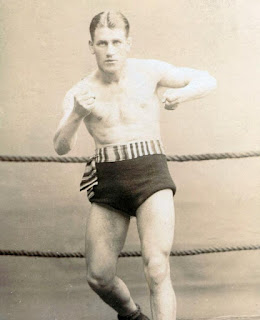Fastest rematch in history?
 |
| Freddie Mills |
On 14 October 1936, a 17-year-old middleweight named Freddie Mills stepped into the ring at Bournemouth’s Westover Ice Rink for his seventh pro fight. Later, he would win the world light-heavyweight championship, become a household name and die tragically in mysterious circumstances, aged 46.
As the bell clanged, Mills swarmed over his opponent in customary style, pounding out a first-round knockout win over the UK-based American Jack Scott. But Scott had only just failed to beat the count and some in the crowd voiced their disapproval.
When Mills went to pick up his purse money, the promoter Jack Turner told him if he wanted to get paid he would have to fight Scott again – not in a month’s or even a week’s time, but that very night! Quite how Scott felt about meeting fearless Freddie again is unclear, but presumably he was obliged to if he wanted his cash.


